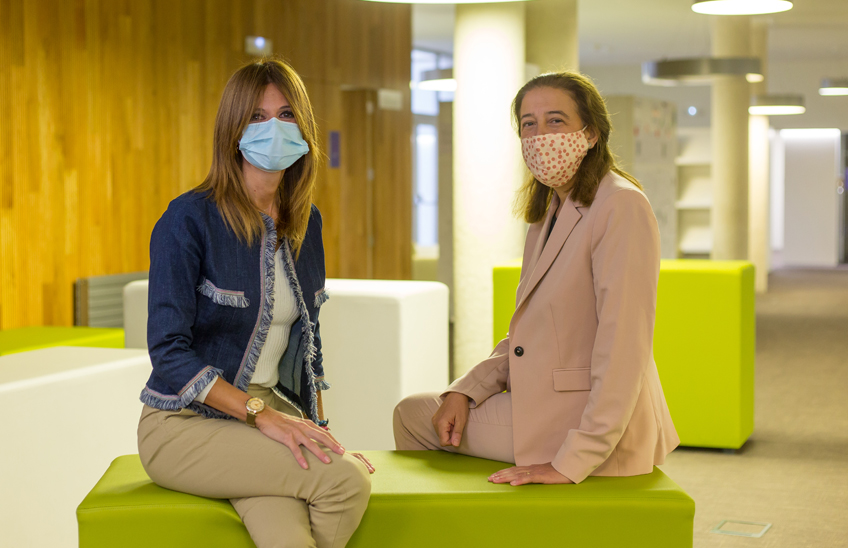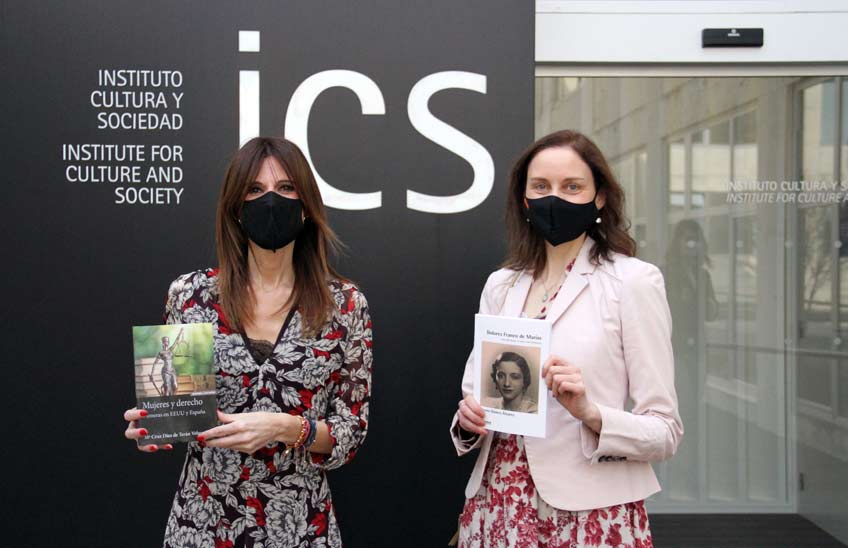Experts from the network WINN of the ICS call for the incorporation of a gender perspective in curricula throughout the system. educational
Mª Cruz Díaz de Terán and Inmaculada Alva have coordinated a special issue on female visibility at Education in the magazine 'Estilos de aprendizaje'.

FotoManuel Castells<br>/Mª Cruz Díaz de Terán e Inmaculada Alva, miembros de la Red WINN del ICS.
13 | 01 | 2022
"In order to achieve equality between men and women, it is a priority to incorporate agender perspective in the curricula at all levels of the system educational".This is what the researchers from the University of Navarra, Mª Cruz Díaz publishing house of the journal Estilos de aprendizaje by University of Navarra researchers Mª Cruz Díaz de Terán and Inmaculada Alva, co-signed with Anna María Colaci, a lecturer at the University of Salento (Italy).
The experts of campus Pamplona have been invited to edit a special issue of the publication on female visibility at Education as a driver of change and equality. They participate in the initiative as members of the network WINN of the Institute for Culture and Society (ICS) of the University of Navarra, which is part of the association Innovactoras.
According to the professors, "access to Education improves people's quality of life, but only if it includes an inclusive and equitable Education , can it help develop solutions to the world's biggest problems". In this sense, they consider it necessary to promote measures focused on advancing "an innovative training towards equality".
Powers to correct discriminatory situations
Mª Cruz Díaz de Terán and Inmaculada Alva point out in their article four measures to contribute to this purpose, which is closely linked to the inclusive, equitable and qualityEducation , one of the United Nations Sustainable Development Goals development .
On the one hand, they suggestdeveloping teaching content that recognises the contribution of women to social, scientific, artistic, humanistic, health, etc. progress. They also propose explaining the problems that exist in terms of gender from a perspective that considers them as issues core topic.
Thirdly, they call for a basictraining on concepts related to gender equality. And finally, they call for the inclusion of a comparative perspective in order to acquire a global dimension.
"With these measures, in addition to the student body acquiring a full and real training , they will develop competences that will allow them to detect discriminatory situations, as well as skills to correct them", conclude the article which frames the special issue .



